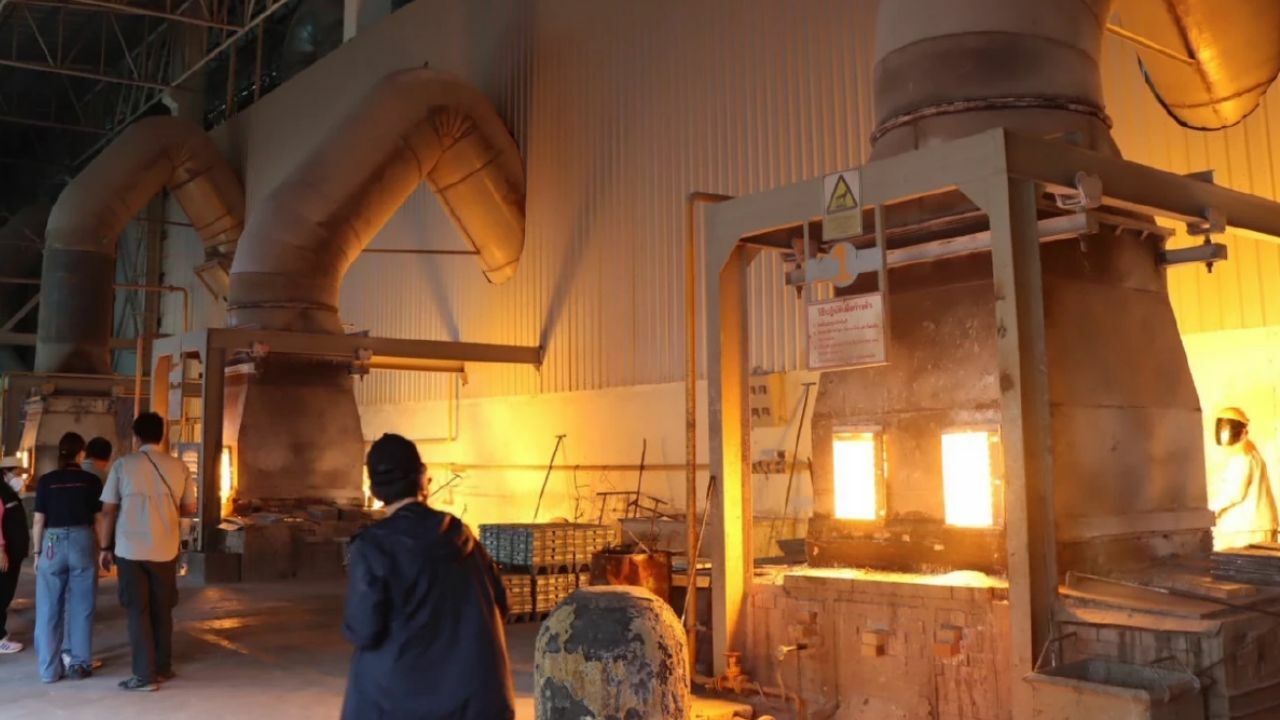Illegal hazardous waste exporter caught running toxic trade operation
Crackdown intensifies on underground networks fueling toxic exports

A key suspect involved in the illegal hazardous waste trade has been apprehended, operating three companies engaged in the processing and export of toxic industrial dust, contravening multiple laws, according to the Ministry of Industry.
Industry Minister Akanat Promphan assigned Thitipas Choddaechachainun to lead a special task force investigating 11 steel factories utilising induction furnace (IF) technology in Rayong. This investigation followed the closure of Sin Ke Yuan Steel and NFMR Co Ltd in Rayong province for using counterfeit hazardous waste transport documents and falsifying waste reports.
The factories failed to manage electric arc furnace dust safely, also known as red dust, which is a hazardous byproduct of steel melting.
“During last month’s inspections of the 11 steel factories using IF technology, we discovered not only illegal production and sale of substandard steel but also a systematic operation to launder the red dust.”
Rather than disposing of the waste, the dust was mixed with chemicals and sent to affiliated firms for export. Investigations centred on Xie Chiang Chemical Industry (Thailand) Co Ltd in Amata City Industrial Estate, Rayong, which produces and exports zinc oxide. Officials found the company accepting red dust from both domestic and international sources and operating unauthorised machinery.
Further investigation revealed that Pan Hongzhou owns Xie Chiang Chemical Industry (Thailand), NFMR Co Ltd, and Xie Xiang Nan-Ferrous Metal Co Ltd in Prachinburi.

The owner uses NFMR to receive the red dust, which is then forwarded to Xie Xiang Nan-Ferrous Metal Co for processing into zinc ingots. Some ingots are sold domestically, while the remainder is sent to Xie Chiang to be converted into zinc powder for sale both locally and internationally, reported Bangkok Post.
“This business operation effectively launders red dust by transforming industrial waste residue into products for export or sale within a network,” she stated, noting that this activity breaches the law.

Latest Thailand News
Follow The Thaiger on Google News:


























